Year Seven
Written by the Year Seven team.

Year Seven
Written by the Year Seven team.
This week at Saltwater College the Year 7’s celebrated World Languages Week. This was a great opportunity for the students to explore, appreciate, and value the diversity of languages and cultures we represent as a community and how many more there are out there in the world.
Each day we had a riddle in a different language and a song in a different language. In English, students have been learning how to write a persuasive article, so they were encouraged to write a persuasive piece responding to the prompt ‘It should be compulsory for all Australian high school students to study a second language.’ This was a chance for students to reflect on the importance of language learning and how beneficial it can be for them.
Year 7 teachers submitted photos of themselves on their past travels around the world and students were challenged to work out what country they were in. On Friday, clues were hidden around the Secondary Building and students had to hunt them down and work out which countries they represent. It was really rewarding to see the students engaging with different cultures, languages and identities. A particularly special moment was seeing students see their own cultures reflected throughout our school. We even have a world map that students have been putting pins in to show how far and wide they’ve travelled.
I can’t wait until next year when hopefully our celebrations can be even more exciting!
Miss Hewat
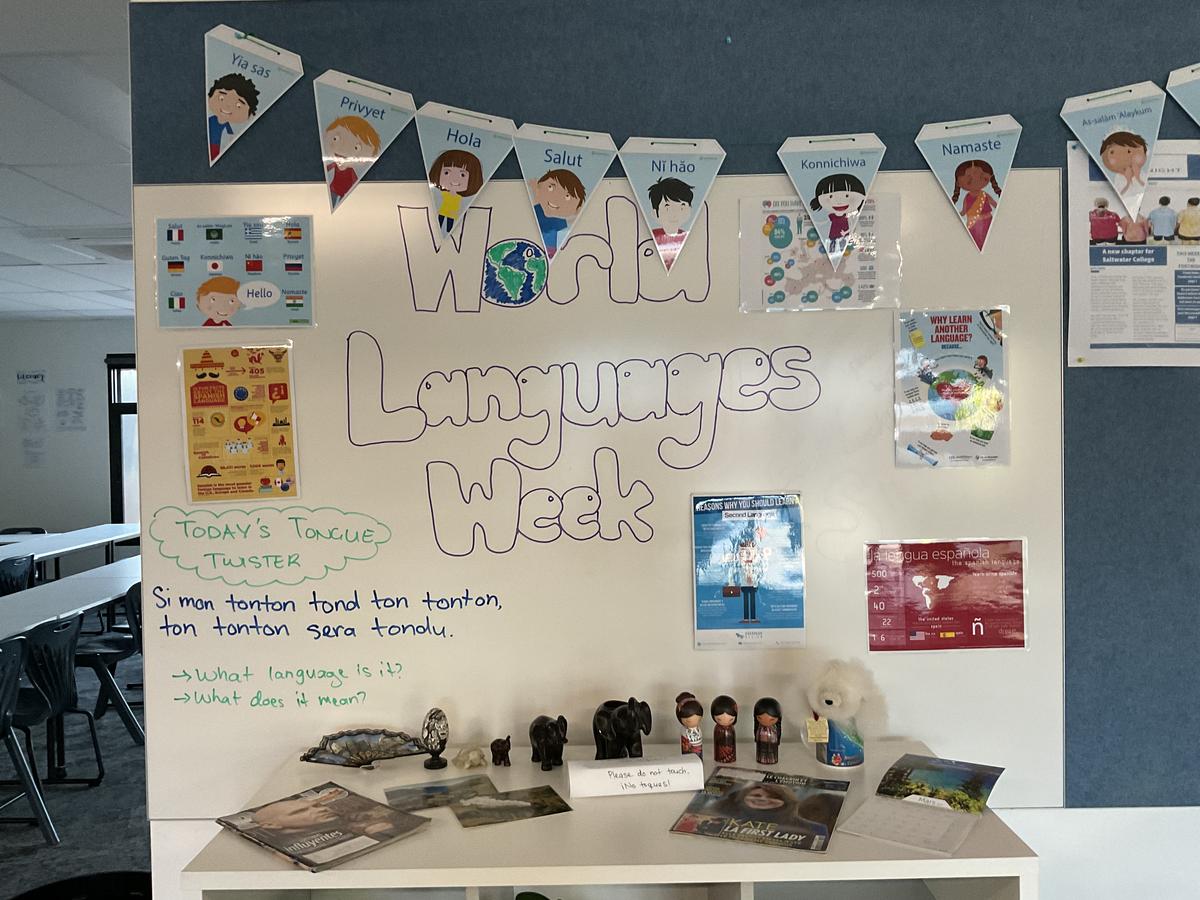
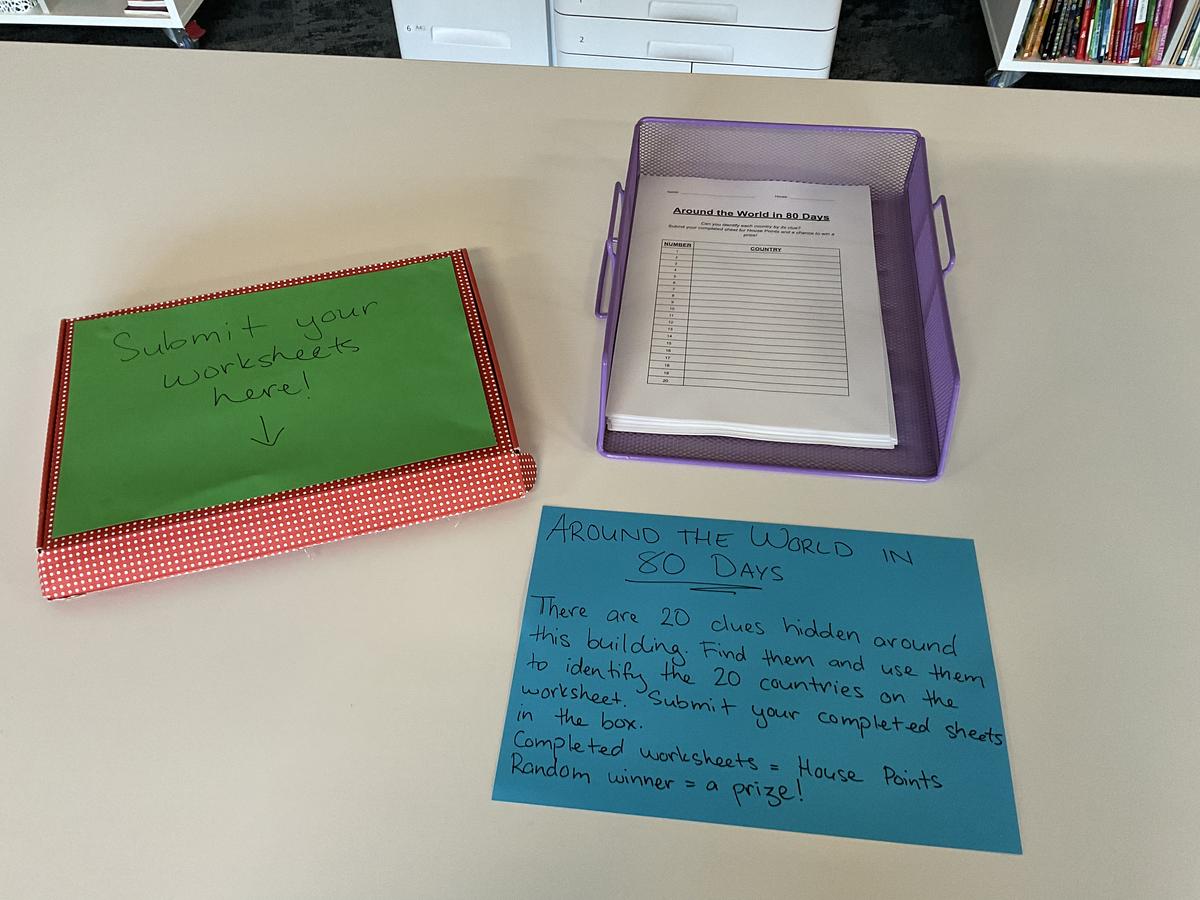
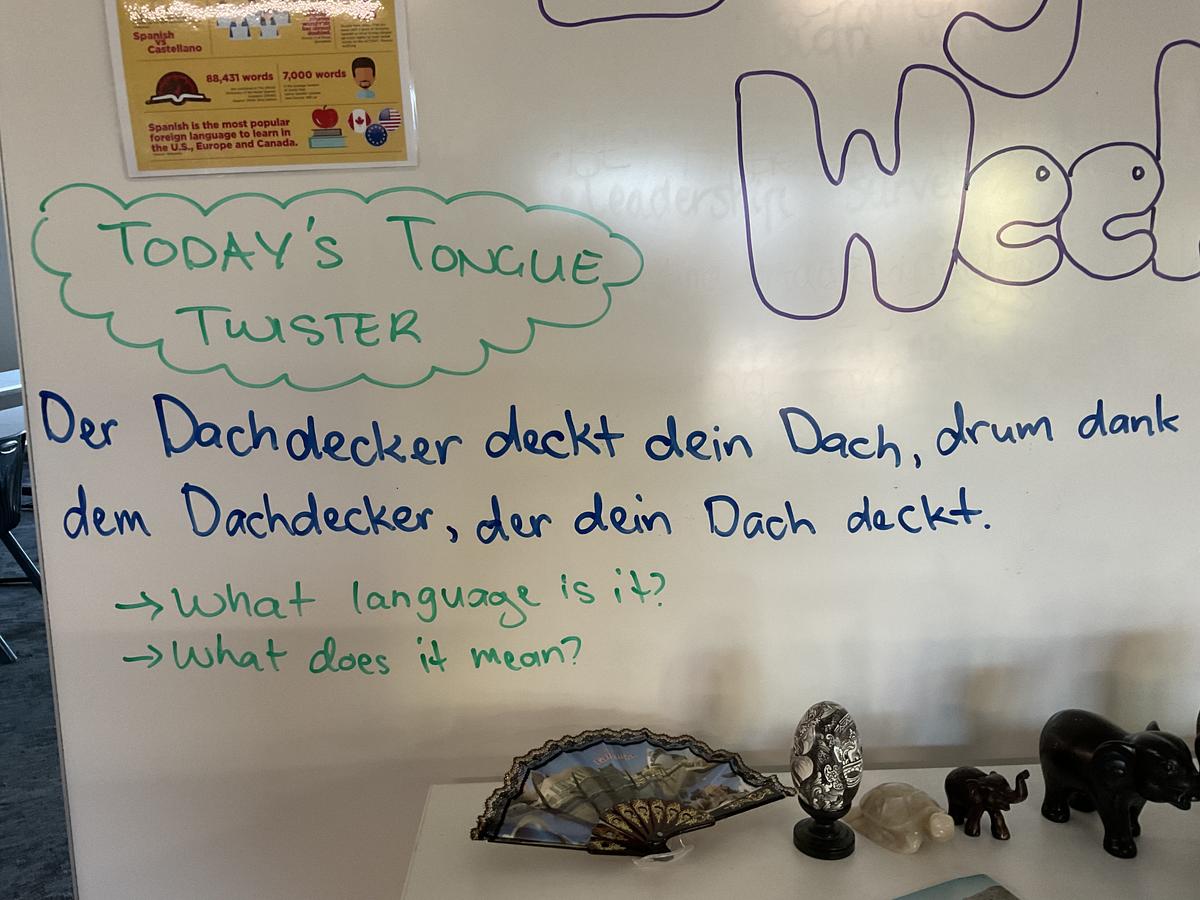
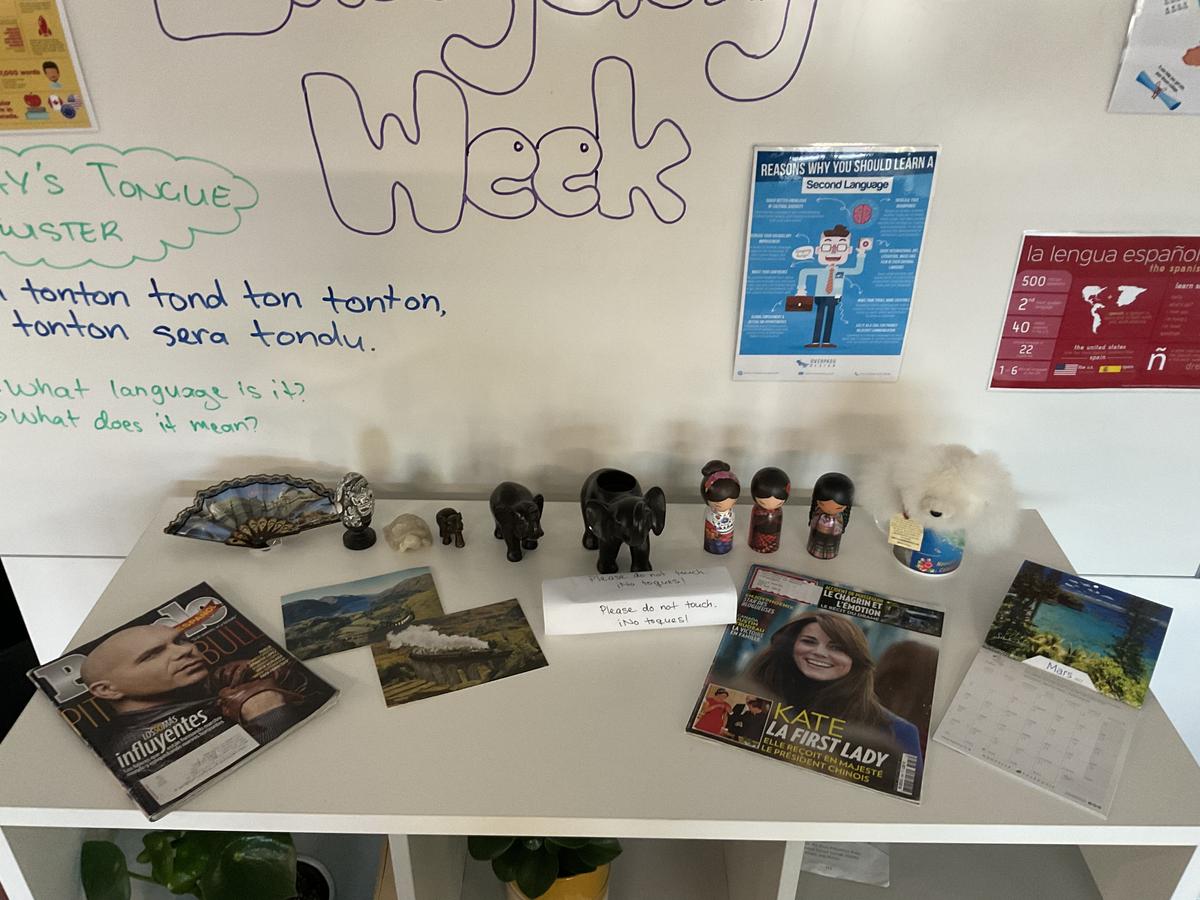




Our wonderful Year Seven students are really getting into the swing of things during their English classes. They are eager to develop their persuasive writing genres after analysing their first writing sample against the ACARA (Australian Curriculum and reporting authority) marking guide. Students investigated what techniques and skills they need to continue to progress their writing, developing a deep understanding of what criteria they are marked against.
We have focused heavily this fortnight on developing students understanding of sentence and paragraph structure and how they are used in persuasive essays. If you were to walk into any English class within the secondary building, you’d see students confidently creating paragraphs that use a variety of sentence types, include detailed information with supporting evidence as well as a number of different persuasive devices. Modality, hyperbole, evidence, and emotive language are all on show. Have a look at these exemplars, showing the high quality of work our Year Sevens are producing.
Student Examples:
Many adults would remember walking/riding to school while growing up, however their
children would remember going by car to school. Despite the walking distance between
their home and school, the 2000 Sydney Household Travel Report indicates that between 1991 to 1999 there was an increasing rate of children going to school by car (41 – 51%) while walking / riding trips taken by school students were decreased from 32 – 24%. This is a staggering statistic which clearly displays a lack of concern of children’s physical activity levels. To increase physical activity, it would stimulate children to go to and from school by walking, cycling and/or public transport. Walking has been recommended because it’ll prevent overweight and / or obesity in children. Developing a habit of walking 5 times a week going to and from school, will form a pattern of physical activity in peoples’ childhood; that pattern may continue in adulthood.
Hala Baker 7C
Buying school uniforms can be overly expensive. A blazer for a secondary student costs $200. That’s outrageous! Not to mention that lots of families have lost their job due to the
nasty disease Covid-19. That means that a lot of parents have had to stay tight on their
budget and some can’t even afford to buy new food and clothes for their families let alone a
really expensive school uniform. This is placing an extreme amount of pressure and stress
on these parents. The simplest solution is for students to wear whatever clothing they have
in their own wardrobe.
Evelyn Lam 7D
By wearing what you want to school you can without a doubt express yourself in any way you desire. Unfortunately, this does not happen since 50 to 75 percent of all schools have a strict uniform policy. This means that approximately 1 billion children around the globe can’t reveal who they truly are to
their friends, family, and students. Imagine the feeling of walking through the gates to school
wearing something that you were keen to show of for ages and knowing that you will be able to
show to others what your interests are. You will undoubtably feel a sense of pride knowing that you are trusted by the school, by wearing what you want students will start to have larger imaginations for all ideas and start to use their creativity more in their tasks. Wearing what you want is the first thing you should do if you really want to get yourself out there and let people know who you are which is why I say students should be allowed to wear whatever they truly want.
Alex Dorey 7E
Over the past few weeks, the Year 7 Wood Technology students have been exploring the Safe Operating Procedures (SOP’s) of several woodworking tools. Students have learned the steps to use the Claw Hammer, Tenon Saw and Chisel safely in preparation for their end of Term project. While using the tools, the students had the opportunity to create individual projects to demonstrate their capabilities to follow the SOP’s of the tools. These projects have included using the Claw Hammer to create String Art and using a Chisel to create a timber Phone Holder.
Sarah H from 7E reflected on her String Art project. “ I learnt how to use different types of hammers, the claw hammer, the brad nail hammer, and a wooden mallet. I specifically used the claw hammer for this project and put my knowledge of what I learnt to use when hammering in the nails. I found it hard to create a piece where the nails stood straight but discovered that if I took my time, and straightened specific nails every once in a while, I managed to create a piece that I was happy with”
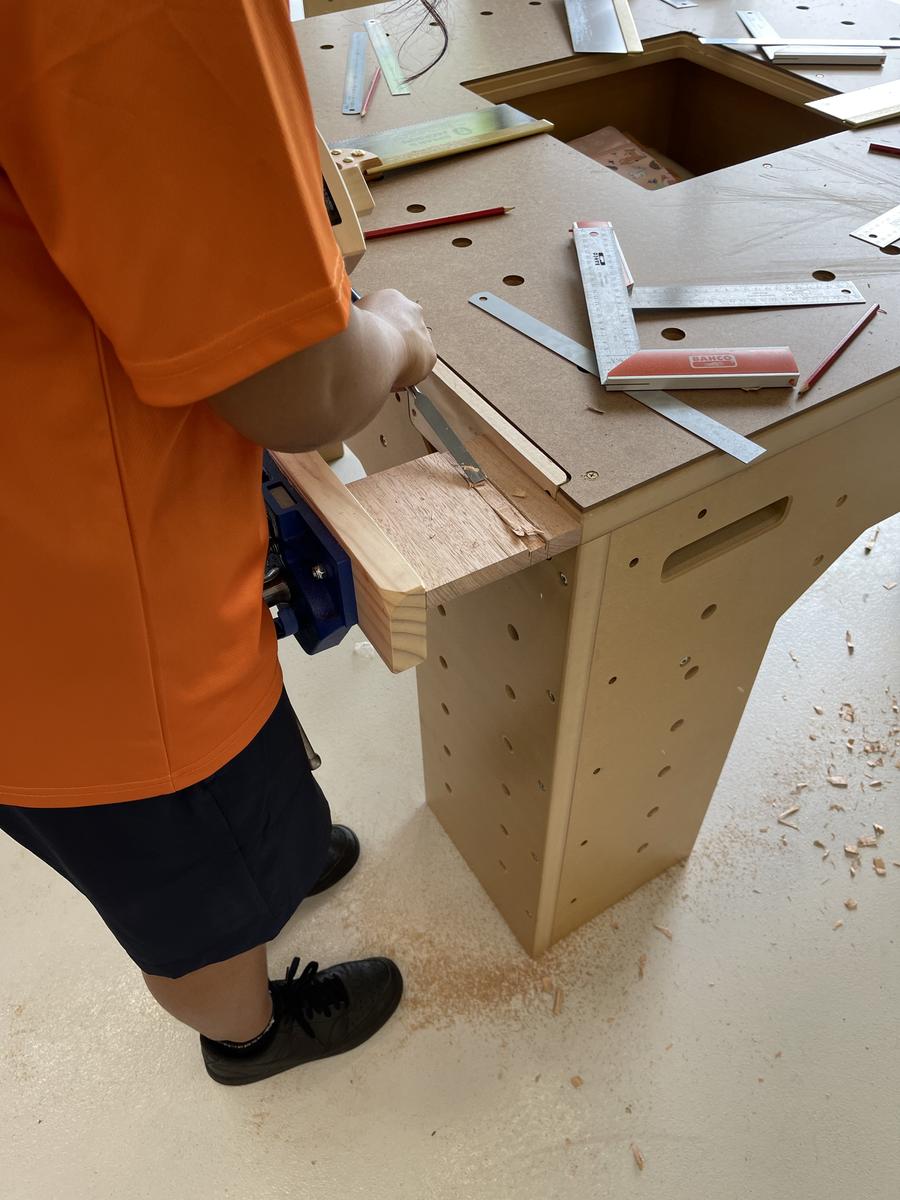
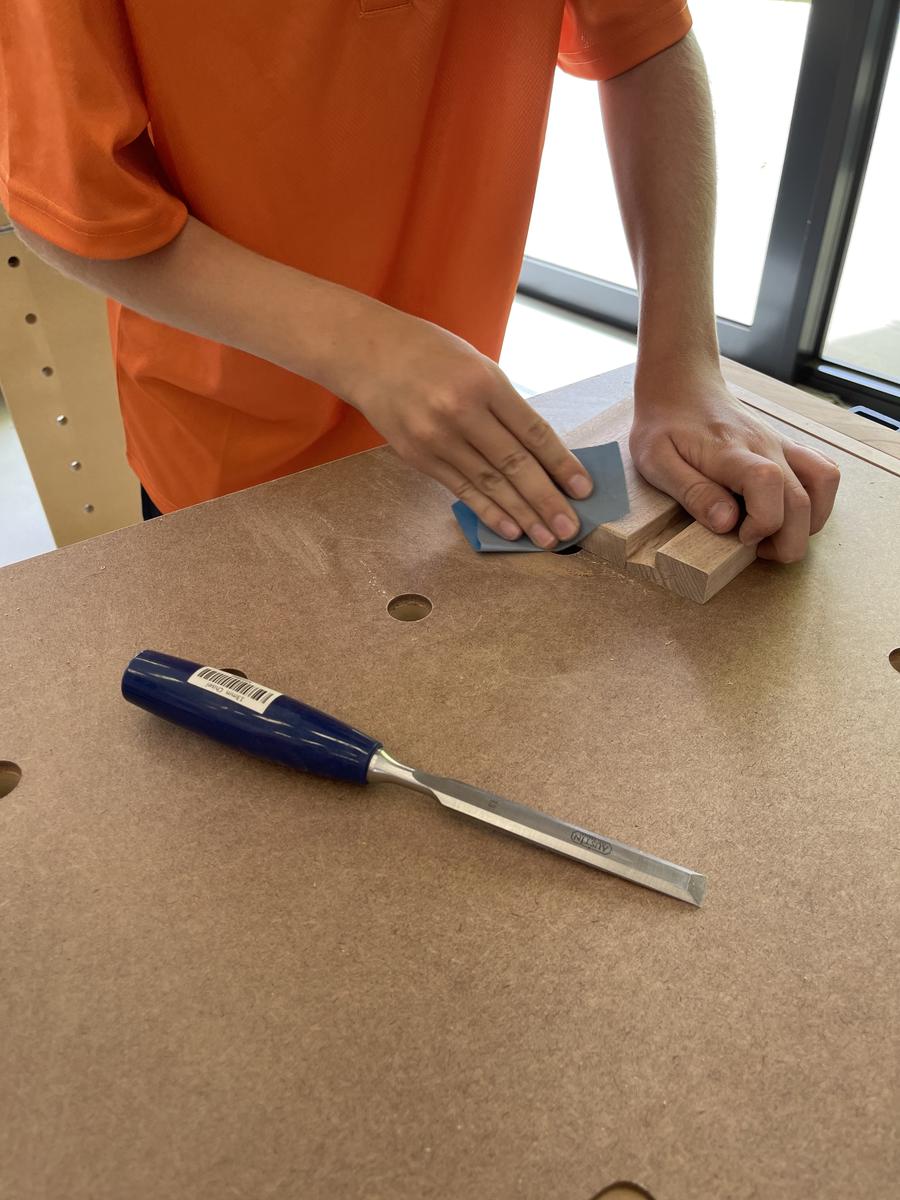
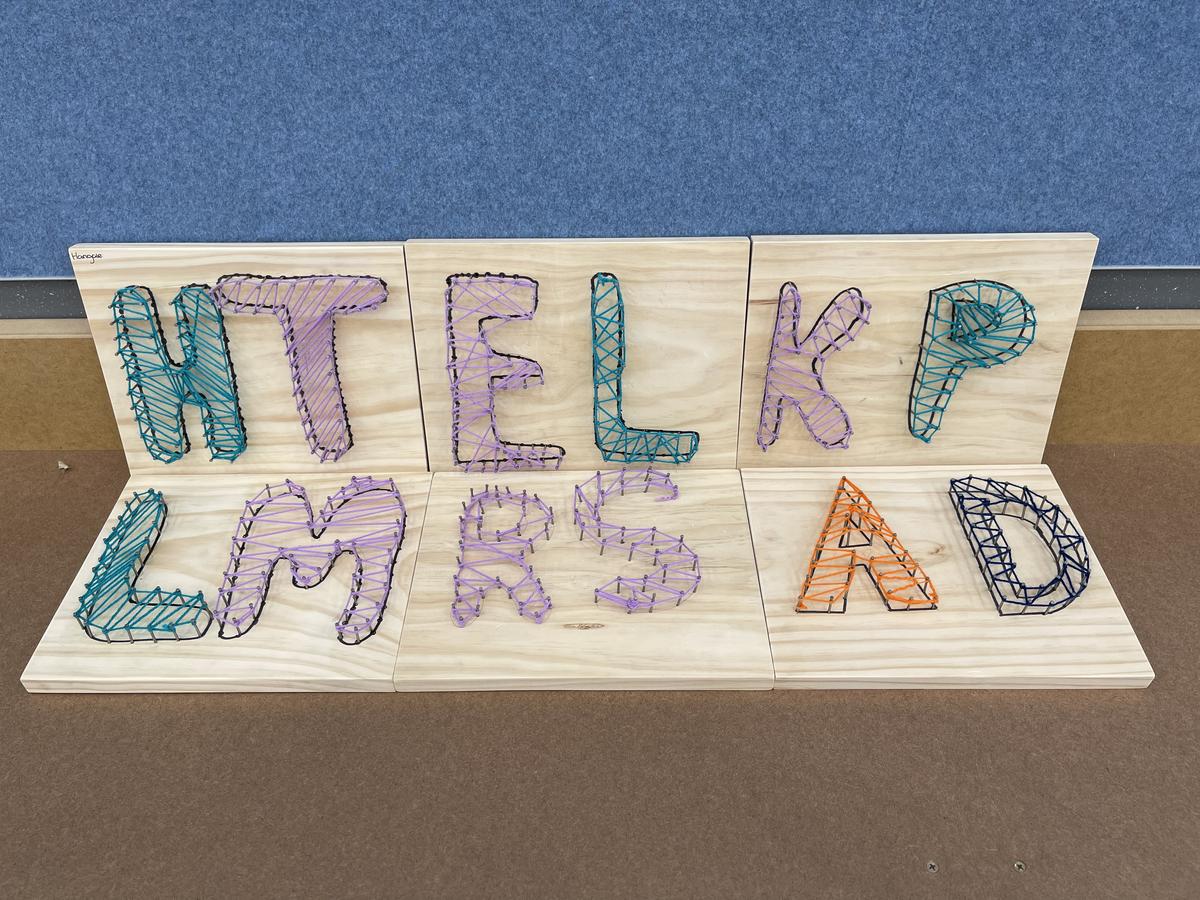
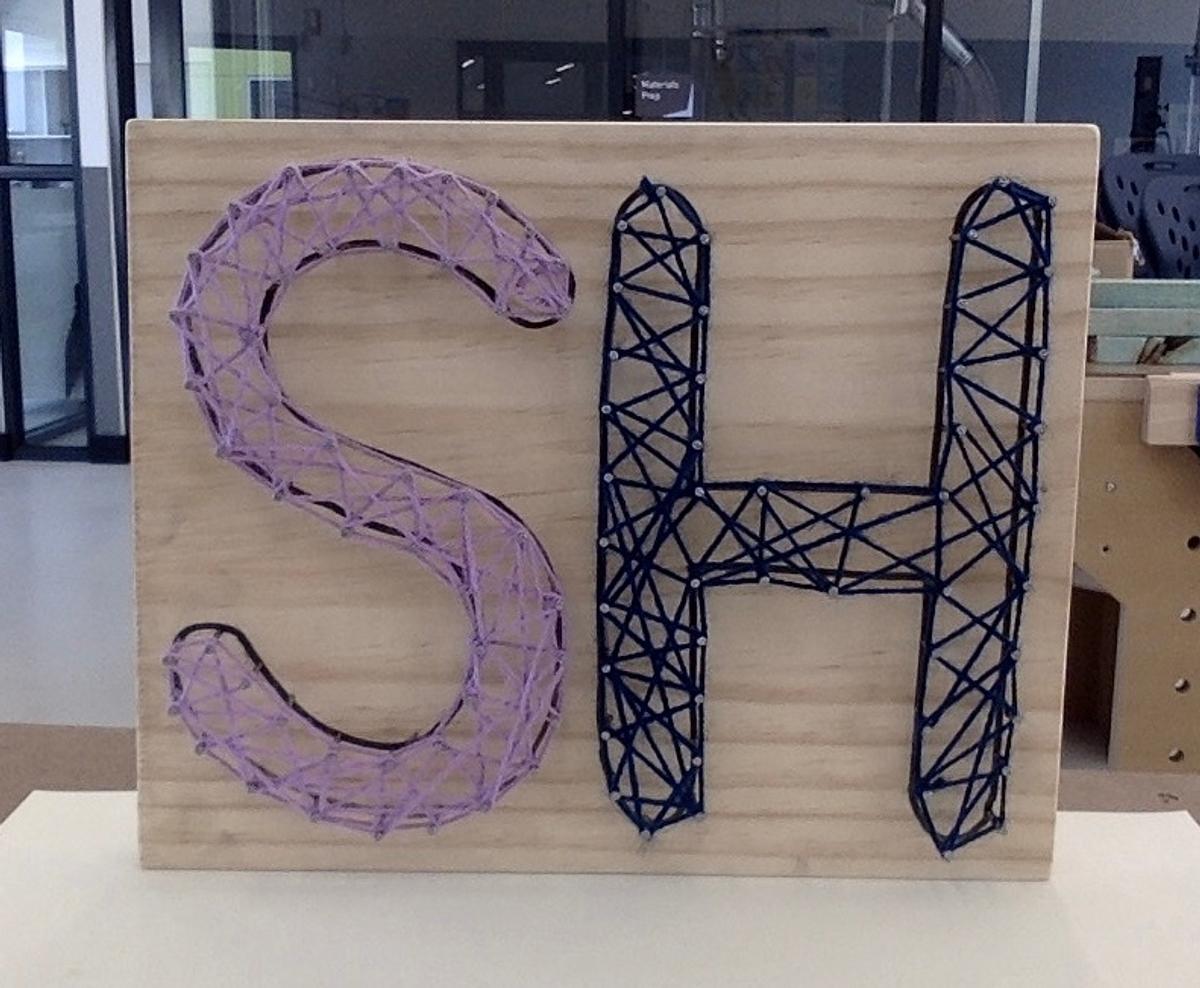




So far in Humanities, we have started our interdisciplinary unit. In this unit, we are exploring the key concept: perspective, within the global context of fairness and development. Our unit objective is to look at the freedoms and responsibilities of citizens in Australia’s democracy with a focus on developing persuasive literacy. Students have begun to consider what they already know about convicts, early Australian settlement, bushrangers and the laws and punishments of the 1800s. Our previous work on ethics, morality, civics and citizenship has helped us to consider the perspectives of people who lived in this time period. Though they are known as law-breakers, the experiences of convicts and bushrangers are complicated and require further exploration. Ned Kelly is a key figure in this research. Throughout history and even today, he is considered a controversial Australian celebrity. Students have been reading articles, journals, letters and a range of other sources of evidence to understand the multiple perspectives of Ned Kelly and to form their own opinions. Our study in this area will be enriched by our upcoming excursion to the Old Melbourne Gaol, where some of the subjects of our research were confined.
Our Year Seven Music students have spent the last two weeks establishing the foundations of music through:
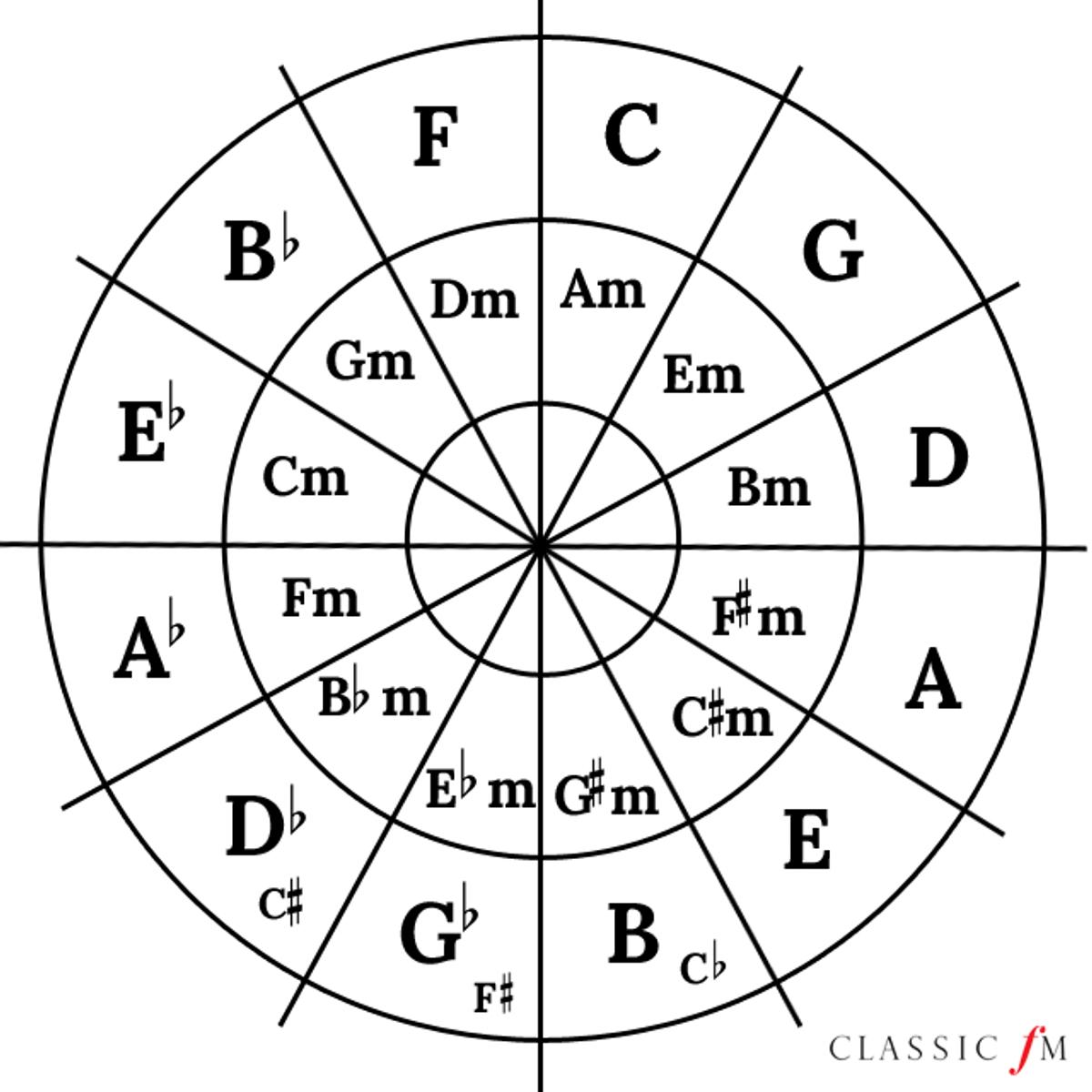

In the coming weeks, the students will continue to analyse various songs, and exploring how the Circle of Fifths was applied to each song. The students will also commence their compositions, using the Circle of Fifths as the basis of their original songs. This project will take them to the end of the Term, where they will present their compositions.